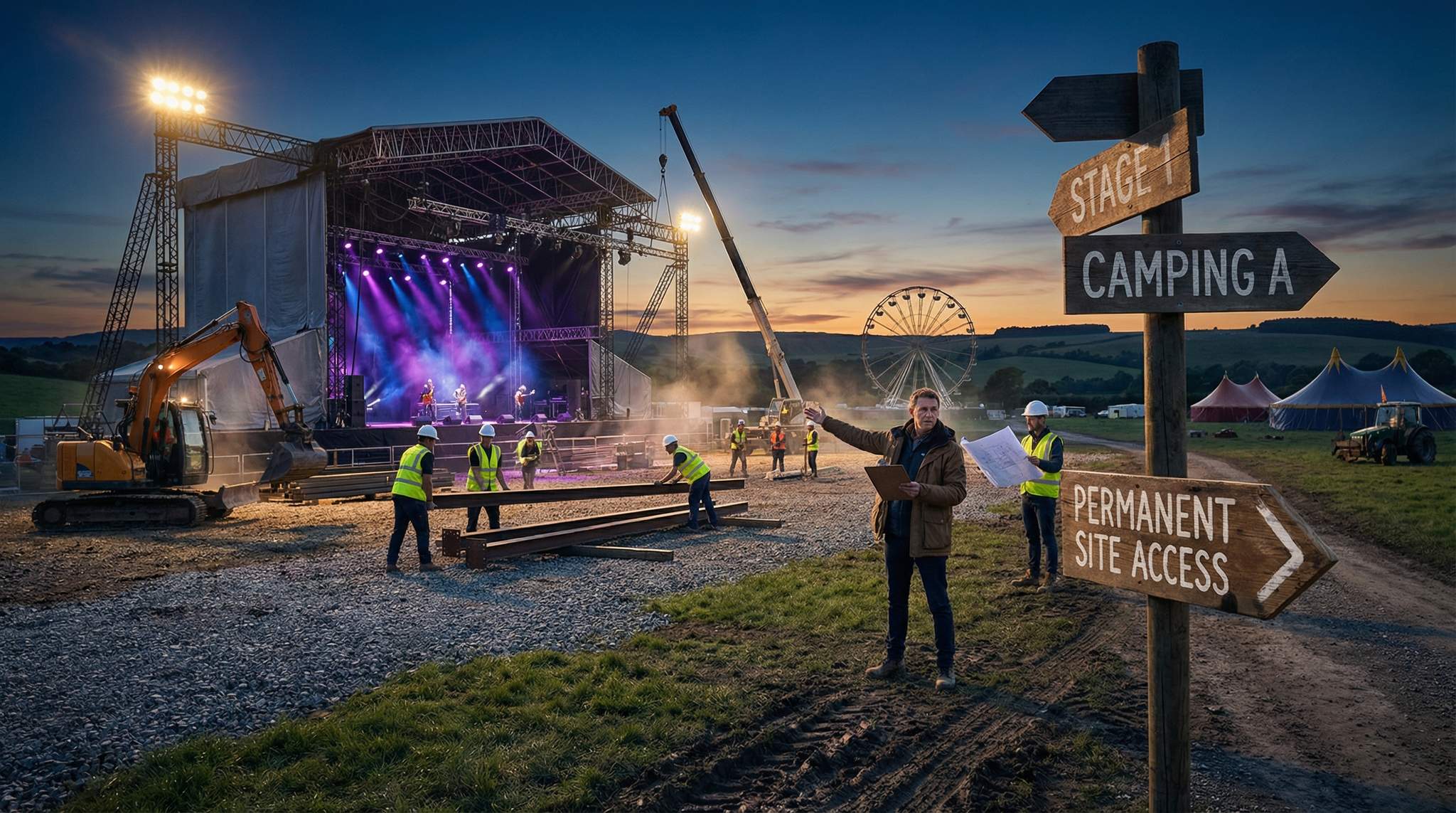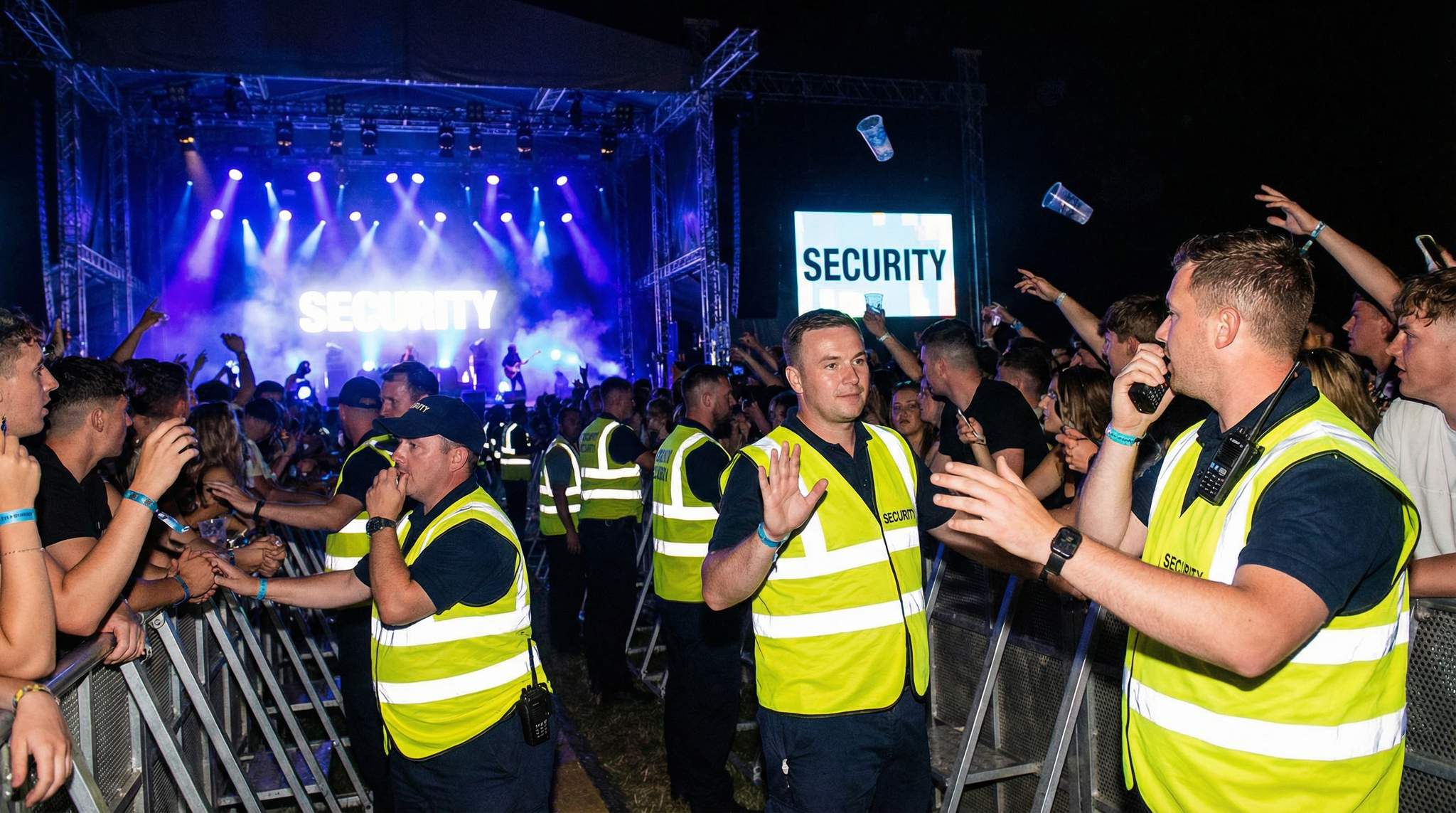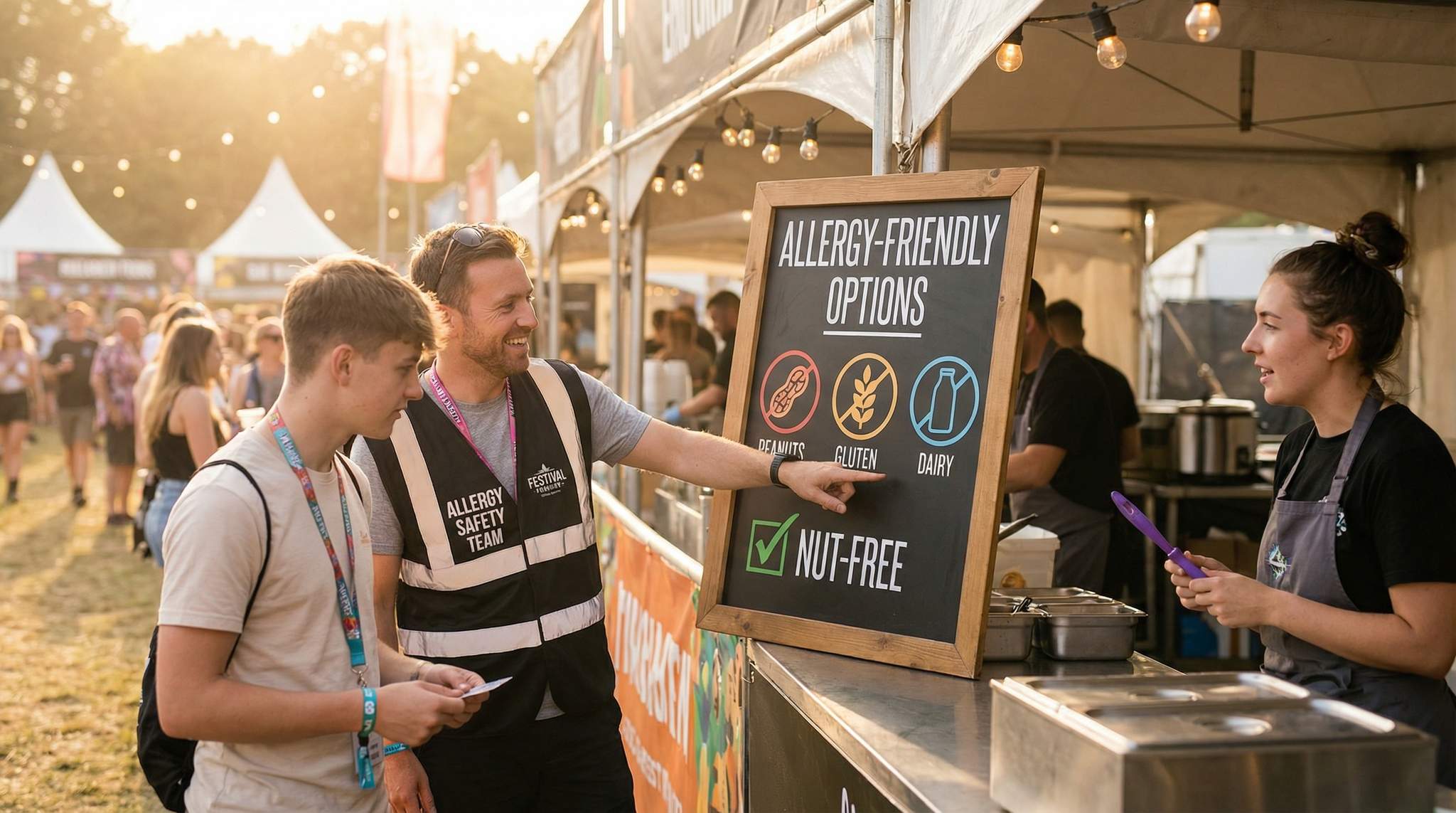Festivals – especially genre-specific gatherings like reggae festivals – are about more than music; they are about cultural exchange and community. Seasoned festival producers know that hosting international artists and attracting a diverse audience often means navigating visas, cultural nuances, and educational opportunities. One powerful but underutilized strategy is partnering with embassies, consulates, and cultural institutes. Such partnerships can secure visa assistance for artists, provide in-kind support (from funding to food stalls), enrich programming with cultural context, and ultimately boost a festival’s credibility and community impact.
This comprehensive guide explores how festival organizers can effectively engage diplomatic and cultural offices, align festival outcomes with cultural exchange goals, track impact beyond just headcount, and showcase results to both the public and diplomatic partners. These insights apply whether you are running a grassroots reggae jam in a local park or a massive international music festival drawing fans from across the globe.
The Power of Diplomatic Partnerships in Festivals
Successful festivals around the world often have quiet partners working behind the scenes: the cultural and diplomatic agencies of nations. Partnering with an embassy or cultural institute opens doors that would otherwise remain closed. Why are these partnerships so valuable? They can:
- Facilitate artist visas and travel – If you’re booking reggae legends from Jamaica or Afrobeat ensembles from Nigeria, visa hurdles and travel logistics are inevitable. Embassies and consulates can assist with the paperwork, provide official letters of support, and sometimes even expedite visa approvals through their channels. In the United States and Europe, where visa processes can be lengthy and expensive, having a diplomat’s endorsement for your festival can make immigration authorities more confident that visiting artists are legitimate cultural ambassadors. This support can mean the difference between a headliner arriving on time or being stuck in red tape.
- Provide in-kind support and sponsorship – Diplomatic offices often have budgets or a mandate to promote their culture abroad. This can translate into tangible support for your festival. For example, an embassy might fund the travel costs of a traditional dance troupe, supply a booth of cultural exhibits, or sponsor a side-event like an art exhibition or film screening related to the festival’s theme. In reggae and world music festivals, it’s not uncommon for cultural institutes to pay for artists’ airfare or accommodation as part of cultural exchange programs. For instance, at SXSW in Texas, the UK’s Department of International Trade and British Council sponsor the “British Music Embassy” stage, flying out emerging British artists to showcase abroad. Similarly, Culture Ireland (the Irish government’s arts agency) regularly grants funds to send Irish musicians to international festivals – an approach any country’s embassy might emulate if the festival aligns with their cultural outreach.
- Enhance programming with cultural context – Festivals thrive when they don’t just entertain but also educate. Embassies and cultural institutes can help you add a rich context to your programming. This might involve curating workshops, talks, or exhibits about the cultural roots of the music and art on display. A reggae festival, for example, can collaborate with the Jamaican Embassy or local Jamaican cultural associations to host a “Reggae Roots” panel discussion, screenings of a Bob Marley documentary, or a pop-up museum of Jamaican musical history. Such contextual programming deepens audience engagement, turning a concert into a cultural immersion. A great example is Spain’s Rototom Sunsplash – one of Europe’s biggest reggae festivals – which features a “Reggae University” session series where artists and scholars (often supported by Jamaican cultural officials and historians) discuss reggae’s history, social impact, and global influence. By aligning with diplomatic partners, you can similarly create areas in your festival dedicated to cultural education, whether it’s a French wine tasting corner via the French Institute at a food & music festival, or an African drumming workshop led by a cultural center.
Aligning Festival Goals with Cultural Exchange and Education
Embassies and cultural institutes have missions centered around cultural exchange, education, and goodwill. To build a strong partnership, show how your festival’s goals align with theirs. Instead of pitching your event simply as entertainment, frame it as a cultural exchange platform that delivers measurable educational outcomes:
- Set cultural exchange metrics – Work with your partners to define what success looks like beyond ticket sales. For instance, how many cross-cultural performances or collaborations will happen? How many countries are represented on stage? How many workshops or lectures will be offered, and how many attendees will engage with them? If you host a reggae festival in Singapore or India, perhaps one metric is how many local attendees learned about Jamaican culture or music history through festival programming. By defining these targets, you give embassies a clear reason to invest – you are helping them achieve their diplomatic mission of spreading culture.
- Educational outreach – Incorporate educational elements that embassies can proudly support. This could include school outreach programs in the lead-up to the festival, such as artists doing mini-performances or Q&A sessions at local schools or cultural centers. For example, before a large festival weekend, your team might organize a “Reggae 101” workshop at a community centre, supported by the Jamaican High Commission or a cultural institute. These activities serve local communities and provide embassies with data (like number of students reached) to report back home.
- Cultural exchange programs – Propose cultural exchange initiatives as part of the festival partnership. Perhaps it’s an artist exchange (bringing a group of foreign artists and also sending local artists to that country’s festival in return) or a collaborative project (like co-writing a song during the festival). Embassies love to see two-way exchange, as it boosts international relations. Align these programs with education by documenting what participants learn from each other. Not only do such initiatives enrich the festival experience, but they also produce feel-good stories that partners can celebrate.
When outcomes are aligned with cultural and educational values, you are effectively speaking the same language as your diplomatic partners. For instance, reggae music’s significance was globally recognized when UNESCO added reggae to its Intangible Cultural Heritage list in 2018 – highlighting its educational and cultural importance. A reggae festival can leverage this recognition, positioning itself as a guardian and promoter of cultural heritage – a perspective that embassies and institutes will readily support.
Tracking Community Impact (Not Just Attendance)
Most festival organizers naturally track attendance, ticket revenue, and social media buzz. However, when partnering with consulates or cultural organizations, it’s crucial to track community impact as diligently as you track ticket sales:
Planning a Festival?
Ticket Fairy's festival ticketing platform handles multi-day passes, RFID wristbands, and complex festival operations.
- Diverse audience engagement – Note the diversity of your festival audience and participants. Diplomatic partners will be happy to see that an event brought different communities together. Did your reggae festival in London attract not only reggae fans but also families from the Caribbean diaspora, curious locals new to the genre, and international students? If so, that’s a community impact worth measuring. Consider conducting on-site or post-event surveys to gather data on what new cultural knowledge attendees gained or how the festival changed their perceptions. Qualitative feedback (like quotes from attendees about what they learned or how they felt connected) can be powerful in impact reports.
- Local economic and social impact – Festivals often boost the local economy – something you should track and share. How many local vendors or small businesses took part and benefited? How many jobs did the festival create (even temporary gigs)? Communities and city officials care about these figures, and embassies can use them to show the positive socio-economic impact of cultural events. For example, if a consulate sponsors a food stall or craft market at your festival, report on the popularity and sales at that stall, or any media coverage highlighting it. It demonstrates a win-win: cultural promotion and tangible community benefits.
- Cultural bridges built – This is more abstract but just as important. Document any new partnerships or follow-on projects that emerged from the festival. Perhaps a local cultural institute started a weekly reggae night after seeing the festival’s success, or a school invited one of the international artists back for a masterclass. These are long-term impacts that show your festival planted seeds in the community. Create a narrative around these outcomes – stories that a diplomatic partner can proudly retell in their newsletters or reports.
By tracking these wider impacts, you provide your partners with concrete evidence that the collaboration achieved more than just a fun party – it made a difference in the community. Many forward-thinking festival producers now include a post-event impact report as part of their standard practice, summarizing not only attendance, but also community outreach metrics, cultural exchange highlights, and economic impact. This kind of reporting elevates the professionalism of your festival and sets the stage for recurring partnerships.
Reporting Success to Press and Diplomatic Channels
When your festival wraps up, the work isn’t quite over. How you report and publicize the outcomes can cement your relationship with embassy partners and pave the way for future collaborations:
- Press releases and media coverage – Issue a press release that highlights the unique partnership aspect of your festival. Local and international media love feel-good stories of cultures coming together. For example, you might get a headline in a local newspaper like, “Jamaican Embassy Teams Up with Festival to Bring Reggae Culture to Thousands in Sydney,” or an arts magazine piece about how “Diplomacy and Music United at XYZ Festival.” Be sure to quote both the festival director and a representative from the embassy/cultural institute in press materials, each highlighting the positive outcomes. This not only spreads the word to the public but also gives credit to your partners, which they will appreciate.
- Diplomatic channels – Prepare a concise report or letter for each embassy/consulate or institute involved, detailing the results (attendance figures, cultural exchange metrics achieved, community impact, media mentions, photos, etc.). Importantly, frame it in terms of the partner’s objectives: e.g., “Through our collaboration, 10,000 attendees were exposed to Japanese taiko drumming and cuisine, fulfilling the cultural exchange goal of the Japan Foundation,” or “Our French Embassy partnership led to a 30% increase in local school students attending the daytime workshops on French-Caribbean music.” If possible, deliver this report in person or via a thank-you meeting – it strengthens diplomatic relationships.
- Public acknowledgments – Use your festival’s social media and website to publicly thank your embassy and cultural institute partners. Tag their accounts if they have social media. A simple post-event infographic highlighting key achievements and partner logos can go a long way. Not only does this recognize their contribution, but it also signals to other potential partners (and even sponsors) that your festival is collaborative and accountable.
- Internal diplomatic networks – Recognize that embassies often share news amongst themselves and with their foreign ministry. Your successful partnership might be held up as an example in diplomatic circles. There have been cases where, after a successful cultural festival partnership was reported, other embassies showed interest in participating the next year, creating a snowball effect of support. One practical example: the Embassy of Egypt in Norway proudly reported its participation in an Oslo cultural festival where it hosted an Egyptian pavilion with traditional food and travel brochures, plus a documentary screening – a story that likely circulated among other diplomats in that country. Aim for that kind of positive ripple effect. When you demonstrate professionalism and positive impact, word gets around.
Scaling Up Care and Credibility
For emerging festival producers, gaining credibility is a major hurdle. Here, diplomatic partnerships can provide an immense boost. When an embassy or respected cultural institute is involved, it validates your festival’s seriousness and quality:
- Credibility with authorities and sponsors – Having official partners can make obtaining permits and sponsorships easier. Local authorities are more inclined to support events that have the endorsement of a government’s cultural office, as it suggests the event has cultural merit and won’t tarnish the city’s reputation. Sponsors, too, see embassy involvement as a sign of trustworthiness and community value. It places your festival in a different league – not just an entertainment event, but a culturally significant program.
- Enhanced care for artists – Partnering with embassies and consulates also means extra care for the talent you book. Diplomatic staff often take a personal interest in their country’s artists when they travel abroad. This could mean the embassy ensures the artists’ welfare (sometimes they even welcome them or check on accommodations), or assists if any issues arise during the event (for instance, lost passports or emergency situations). From the artist’s perspective, knowing their embassy has their back can make them more comfortable performing at your festival. It shows that your festival cares enough to involve their home country’s support.
- Scaling through networks – Each successful partnership paves the way for more. If your reggae festival in Australia had a great outcome thanks to the Jamaican High Commission’s involvement, next year you might attract interest from the consulates of other Caribbean nations or countries represented in your lineup. Over time, you could have a festival that’s a platform for many cultures – effectively scaling up the event’s profile and resources without a proportional increase in budget. Diplomatic partnerships are often based on reciprocity and goodwill rather than cash, which is invaluable for smaller festivals. They bring in resources, programming, and prestige that money can’t easily buy.
- Long-term relationships – Treat these partnerships as more than one-off transactions. By maintaining good communication and demonstrating results, you build long-term allies. Many embassies appreciate consistent annual collaborations; it helps them in their yearly planning to know that, for example, every summer there’s a reliable reggae festival where they can showcase their culture. This ongoing relationship adds stability to your planning as well – you may find that the embassy proactively reaches out to ask, “What are the dates this year and how can we participate?” This level of engagement means you’ve achieved a high degree of credibility and trust.
In essence, embassy, consulate, and cultural institute partnerships allow festival producers to scale up both the care taken in execution and the credibility perceived externally. It’s a strategy that benefits everyone: the festival gains support and stature, the diplomatic partner achieves cultural outreach goals, artists get smoother logistics and a warmer welcome, and audiences enjoy a richer experience.
Frequently Asked Questions
Why should music festivals partner with embassies?
Embassies facilitate artist visas, provide in-kind support like travel funding, and enhance programming with cultural context. These partnerships boost credibility with authorities and sponsors while aligning festival goals with diplomatic missions of cultural exchange and education, ultimately expanding the event’s community impact and logistical resources.
How can embassies help with international artist visas?
Diplomatic offices assist with paperwork, provide official letters of support, and expedite approvals through internal channels. Their endorsement signals to immigration authorities that visiting artists are legitimate cultural ambassadors, significantly reducing the risk of delays or rejections common in lengthy visa processes for international performers.
Do cultural institutes provide sponsorship for festivals?
Cultural institutes often provide in-kind support and funding to promote their culture abroad. This includes covering artist airfare and accommodation, sponsoring cultural exhibits or food stalls, and funding educational workshops. For example, agencies like Culture Ireland grant funds to send musicians to international festivals for cultural outreach.
How do you align festival goals with cultural exchange?
Festival organizers align goals by defining success beyond ticket sales, focusing on educational outcomes and cross-cultural collaboration. This involves setting metrics for workshops or lectures, organizing school outreach programs, and facilitating artist exchanges. Framing the event as a platform for cultural heritage attracts diplomatic support.
What are examples of cultural programming at music festivals?
Cultural programming includes workshops, panel discussions, and exhibits that provide historical context to the art. Examples include the “Reggae University” at Rototom Sunsplash for academic discussions, film screenings of documentaries, African drumming workshops, or specific food tasting corners supported by cultural centers to deepen audience engagement.
How should festivals measure community impact?
Organizers must track audience diversity, local economic benefits, and cultural bridges built. Metrics include the number of local businesses supported, jobs created, and qualitative feedback on what attendees learned. Documenting new partnerships or follow-on projects demonstrates the festival’s long-term value to diplomatic partners and the community.
How do you report festival success to diplomatic partners?
Create a concise post-event report detailing attendance figures, cultural exchange metrics, and media coverage. Frame results around the partner’s specific objectives, such as the number of students reached or cultural exposure achieved. Delivering this report in person and publicly acknowledging partners on social media strengthens long-term relationships.
Does embassy involvement help with festival permits?
Official partnerships with embassies validate a festival’s seriousness, making it easier to obtain local permits and sponsorships. Authorities view government-endorsed events as having cultural merit and trustworthiness. This credibility also reassures sponsors and ensures better care and logistical support for international artists during their stay.





